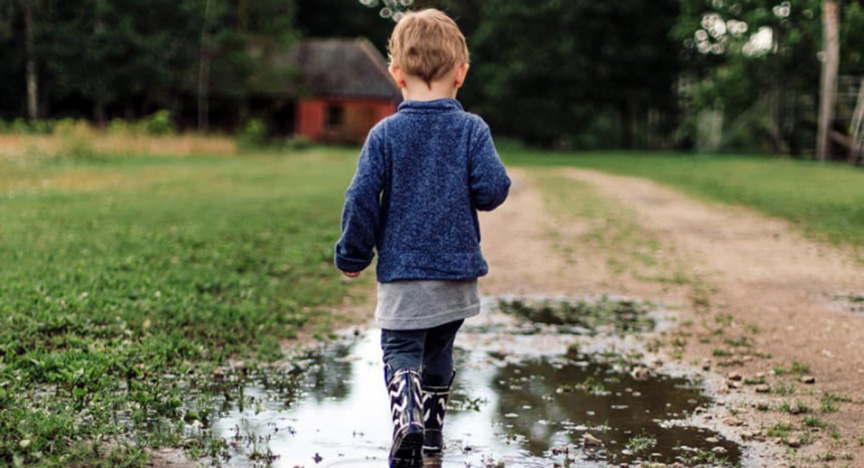
Severe weather events like cyclones, floods, fires or drought can be scary for people of all ages, but babies and young children may feel particularly insecure and vulnerable. Too young to fully understand what’s happening, they may be frightened by the sights and sounds around them – thunder, lightning, flames, sirens, helicopters. Babies and young children are also affected by the emotions of their parents, siblings and others. Stress may affect their sleep, eating, toileting, mood and relationships.
After a stressful event, a young child may feel anxious and, uptight, struggling to concentrate or remember things. They may lose their sense of trust in the world, feeling afraid to explore and experiment. Their mood may be sad, ‘flat’ or irritable. Any of these emotional problems may interfere with their learning and development.
It’s important to remember that every child is different. One may bounce cheerfully through a natural disaster, while another may need a lot of reassurance and support. Having a cuddle, playing a therapeutic game or reading a story with a caring adult can help a young child work through distressing experiences and regain confidence.
How to help your child recover from a severe weather event
- Spend time with them to help them feel safe
- Get back to regular routines as soon as possible
- Play with them – choose activities they enjoy such as bubbles, play dough, reading, singing and dancing
- Laugh and have fun together
- Communicate with others who help care for your child, such as family members, neighbours, kindy teachers, your GP
- Help your child feel understood by helping to label their feelings. For example, “I can see you’re feeling sad.”
- Limit their exposure to TV and radio reporting on the severe weather
- Look after yourself – as they say on planes, ‘fit your own oxygen mask first so you can help others, including children’
- Read a storybook together
Build healthy, resilient minds
When babies and young children experience loving and stable relationships, they learn what to expect of others and the world. By paying attention and responding supportively, you teach your baby or young child that:
- They are worthy of being cared for
- You are dependable and will look after them when they are upset
Babies and young children manage their feelings through relationships with their parents and other caring adults. Strong relationships help babies and young children recover from stressful times.
Where to get help
If you have any concerns about your child’s mental health or emotional wellbeing after severe weather or any distressing experience, please speak to your GP or local Child and Youth Mental Health Service.